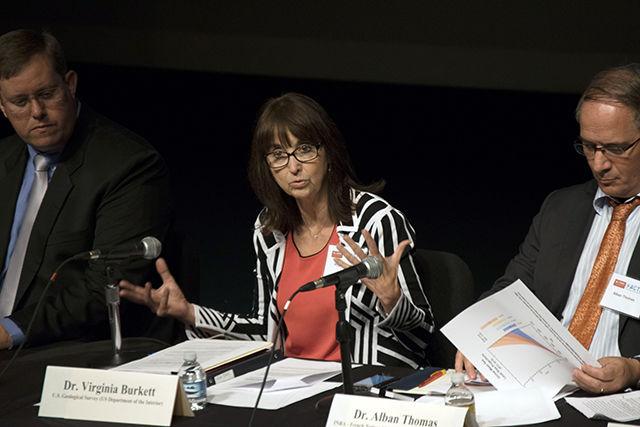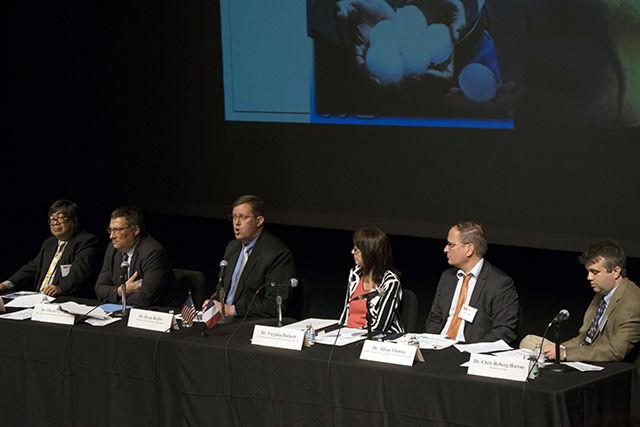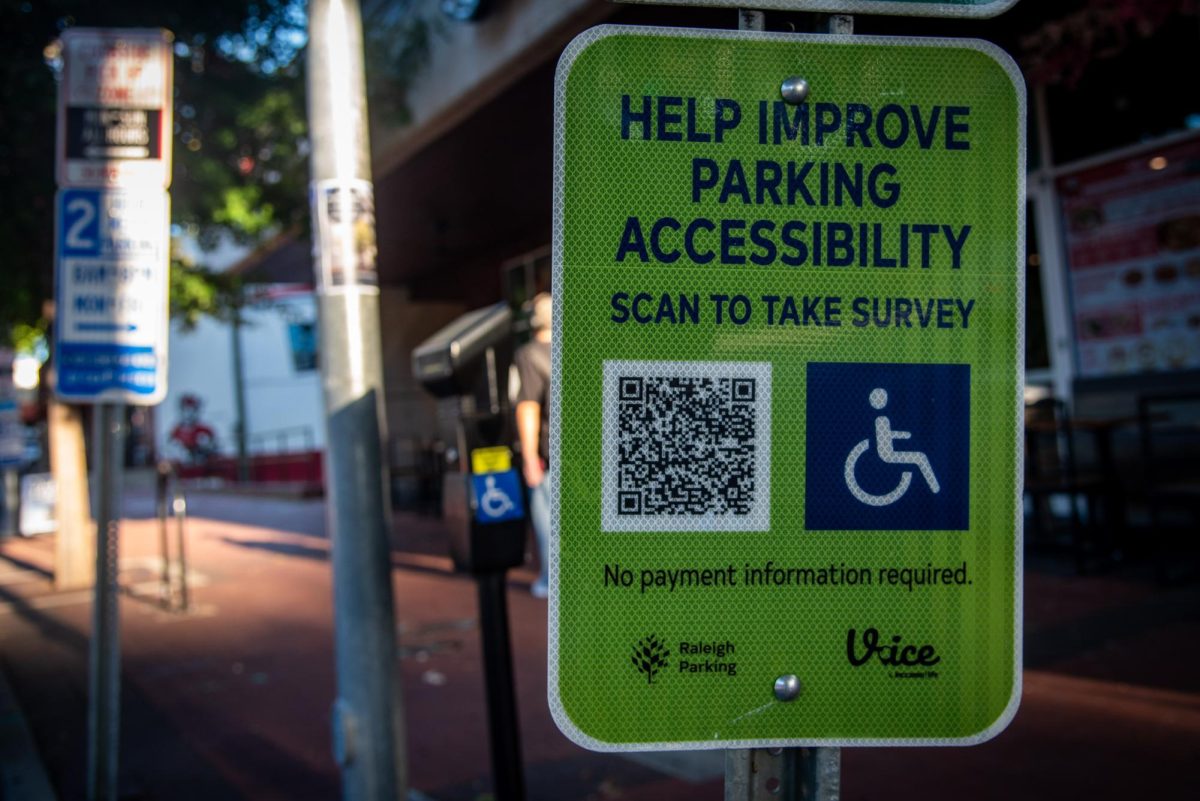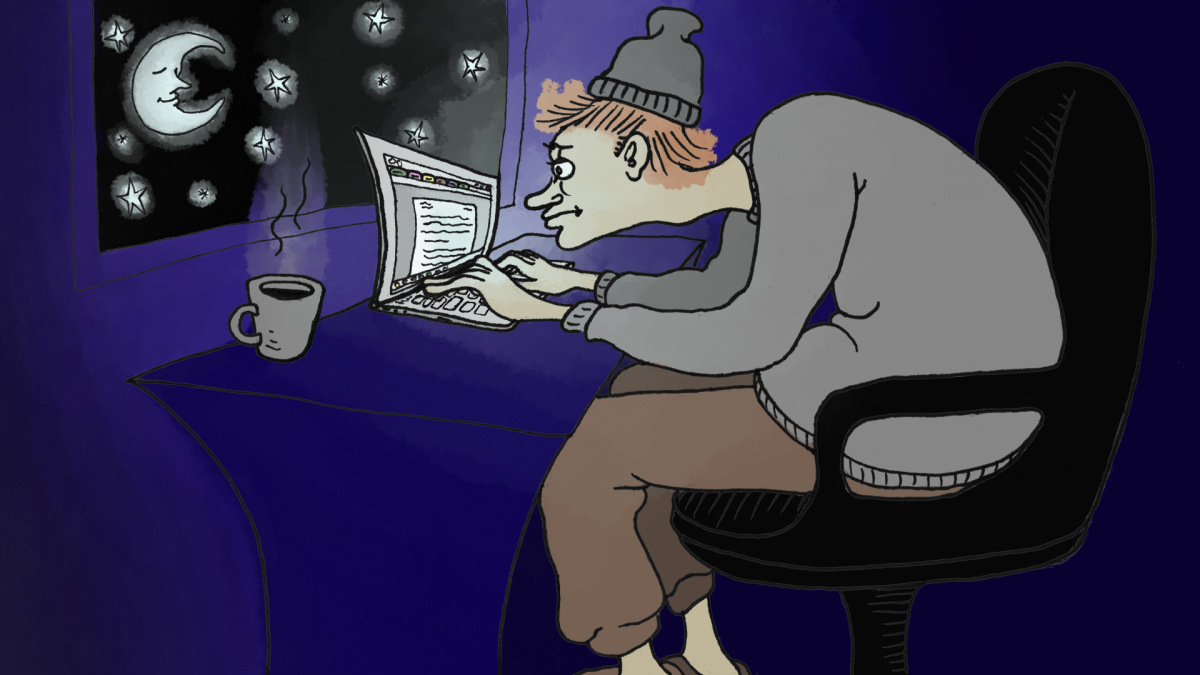On Thursday night, NC State partnered with the Office for Science and Technology of the Embassy of France in order to host the French Ameri-Can Climate Talks (FACTS) Symposium.
The event, titled “Climate-Smart Agriculture: Innovation and Resiliency,” was held to increase public awareness of the intersectionality between climate and agriculture, as well as to discuss environmental, economic and societal impacts and possible solutions. The symposium was held in Stewart Theatre, part of the newly renovated Talley Student Union, and was free to the public.
Several distinguished panelists participated in the symposium, including NC State’s own Ryan Boyles, NC State climatologist and director of the State Climate Office. Panelists from France were also in attendance, including Olivier Le Gall, agronomical engineer and deputy director general of the French National Institute of Agricultural Research.
Luis Tupas, deputy director for Bioenergy, Climate, and Environment at the U.S. Department of Agriculture’s National Institute for Food and Agriculture, opened the discussion by speaking about how climate change affects agriculture. He described how climate change increases land and water constraints, the amount of urbanization and environmental degradation.
“The earth will need to provide for an estimated 9 billion people by 2050,” Tupas said, underscoring the reality of the urbanization and population increases the world faces.
The rest of the panelists shared similar testimonies of ecological distress depicting the scale of the problem policymakers and scientists face in solving this issue.
“One factor of climate change is an increase in sea level as a result of melting polar ice caps,” said Virginia Burkett, chief scientist for Climate and Land Use Change at the U.S. Geological Survey. “This has resulted in a degree and a half increase in sea level temperature since 1880, and an increase of 400 feet in sea level over the last 150 years.”
Burkett said that as sea level and temperature rise, the amount and intensity of tropical storm is expected to increase.
While these numbers seem insignificant within the context of the entire world, Boyles said that “by the middle of the century there will be an extra month of summer-like weather, and we are already experiencing an increased level of variability in water reserves,” making climate change a more immediately perceivable problem than one might expect.
All panelists were in agreement about the harsh realities of climate change. They agreed there is a need to mobilize and inform both growers and politicians in order to come up with innovative, adaptive solutions to the myriad of global problems facing not just the United States, but the world.
This is somewhat problematic, particularly in the U.S., where climate change and global warming are both topics of heated political debate.
“What we’re seeing in France and in much of Europe, as opposed to the U.S., is that there is not much political debate about whether or not global warming is real or not,” Le Gall said. “That debate is settled. Now we are working on how to deal with this phenomenon. We are in consensus that it exists, and we are working to adapt.”
How exactly can we begin adapting? Le Gall said there is a need to produce more food to feed a growing population with fewer resources than ever before. The panelists recognized that there are no simple solutions to such a global problem, and they encouraged the education of politicians, growers and university students around the world on issues of climate change and innovative agriculture.
“I don’t think there are any easy answers to climate change and the way it is impacting agriculture,” said Chris Reberg-Horton, assistant professor and organic cropping specialist in the Department of Crop Science at NC State. “Are we going to go back to having over 20 percent of the workforce working in agriculture? I don’t think that’s going to happen. I wouldn’t mind a few more farmers out there — there are more young people entering agriculture for the first time in many decades. I’d like to have more brains out there working agro-ecosystems.”
Kat Stafford, a sophomore studying microbiology at NC State who attended the symposium, agrees with Reberg-Horton about the need for more students in both the College of Agriculture and Life Sciences and the College of Natural Resources. “I think that it is more important than ever that we encourage young people to go into the sciences,” Stafford said, “particularly in light of global problems such as climate change.”
Panelists listen as Dr. Ryan Boyles, a Professor, State Climatologist, and Director of the State Climate Office, and University Director, U.S. Department of the Interior South east Climate Center presents on "Climate Change and Impacts in North Carolina " at the French Ameri-Can Climate Talks (FACTS) held on Aug. 27, 2015. The event was organized by the Embassies of France in both Canada and the United States and took place at NC State University, Stewart Theatre, in partnership with the Southeast Climate Science Center.






